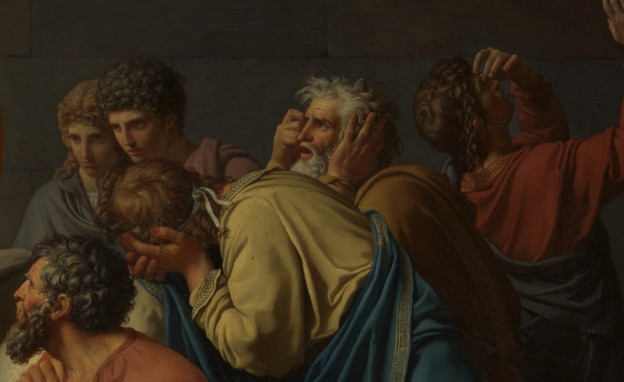Warning: This devotion addresses an awful example of abuse. If you or someone you love has suffered abuse, this passage and devotion may be distressing to you.
We live in a terrible, sinful world. Sad and terrible things happen to people because of the sinful, callous, and selfish desires of other people. It fills the news, social media, and television. We all know people who have been hurt by others. If there is one place it should never happen, it is amongst God’s People.
Unfortunately, it does happen amongst God’s People, both then and now. In Judges 19, we see the terrible moral decline of God’s People that went along with their religious decline. Callous and cruel people, supposedly covenant people, treating others as objects instead of Image Bearers. This passage warns us to watch that our practice matches our doctrine, lest we too begin to resemble the worst the world has to offer.
After the account of religious decline, the author begins another tale which describes the moral decline of God’s People “when there was no king in Israel” (v.1). This tale centres around a Levite who acquires a concubine (v.1), a lower status spouse, who was unfaithful to the Levite and then ran away home to her father’s house for four months (v.2).
Despite her unfaithfulness, the Levite made the long journey south to reclaim her (v.3). While there, the Levite enjoyed the warm and generous hospitality of his father-in-law (vv.3-9). Only as evening approached on the fifth day did the Levite decline further hospitality, and depart with his servant and concubine (v.10).
As night approached, the Levite had the option of entering foreign-controlled Jebus (pre-conquered Jerusalem) or pressing on to Gibeah, a Benjaminite town. Fatally and ironically, the Levite chose God’s People over foreigners (vv.11-14).
The custom was that visitors were shown hospitality by the locals, but none of the townsfolk were interested in playing gracious host (v.15). Eventually another “foreigner” (an Ephraimite) from another generation showed the Levite and his associates hospitality (v.16).
To encourage the Ephraimite to show hospitality, the Levite lied about his destination, implying he was on a pilgrimage to the tabernacle up north, rather than home (vv.17-18), along with indicating he had plenty of supplies (v.19). In other words, they only needed a bed for the night. The Ephraimite was happy to show hospitality, and as he believed, respect for God (vv.20-21).
What came next is both appalling and distressing. It is written to mirror Genesis 19, and invite the direct comparison between an iniquitous Canaanite Sodom towards Lot’s visitors, and Gibeah.
After the Levite and his host settled in and began enjoying themselves, the worthless townsfolk beat on the door, demanding to have their way with the Levite (v.22). The host refused to give up his guest, but as in Genesis 19, the concubine and the host’s poor daughter are offered to the crowd to be violated instead (vv.23-4).
Unlike its mirror, there are no angels to save with blindness this time. It would seem that expressing power was mixed with sexual desire, since Gibeah satisfy themselves with violating and abusing the concubine all night (v.25). The concubine which the Levite cruelly threw to them to save himself.
With dawn came the end of the ordeal for the poor woman, who collapsed at the front door (v.26). Her callous husband, ready to leave, showed no concern for her, who perhaps by then had died from the harm (vv.27-8). Instead he trussed her body up on his donkey, and went home.
The Levite then callously cut up his concubine and sent her pieces around Israel, calling attention to what happened (v.29). Certainly it shocked Israel, though whether it was the vile abuse or the undignified dismemberment is unclear (v.30). Perhaps both.
What happened at Gibeah and after was the epitome of moral depravity. Someone bearing God’s Image was abused and dehumanised, and even her “husband” was complicit and cruel in how he treated her afterwards.
This should not have happened amongst God’s People. But it did. Despite the Law, it was forgotten in the rush to satisfy sinful desire. Confession and status as Covenant People did not stop the mob.
There is a clear warning here (1 Cor. 10). What we confess with our lips and hear with our ears must affect our lives, lest the Church becomes like and endorses the worst the world has to offer. There is no special shield around the visible church which defends us from moral depravity; we must seek and dwell on that which is pure and holy (Phil. 4:8). And to comfort and care for those who suffer abuse at the hands of evil people.
But this passage is about evil inside God’s People, not outside. We cannot be a beacon to the nations if we act like them, as if we have no king. Christ is our king. Christ’s humility, self-denial, service, and sacrifice freed us from the guilt and power of sin, so we might serve him with thanks by loving him, by following his example, and doing what he commands. In all this, we need the Spirit’s help.

